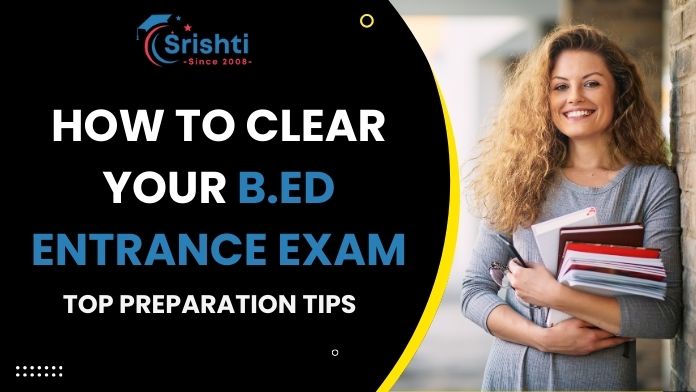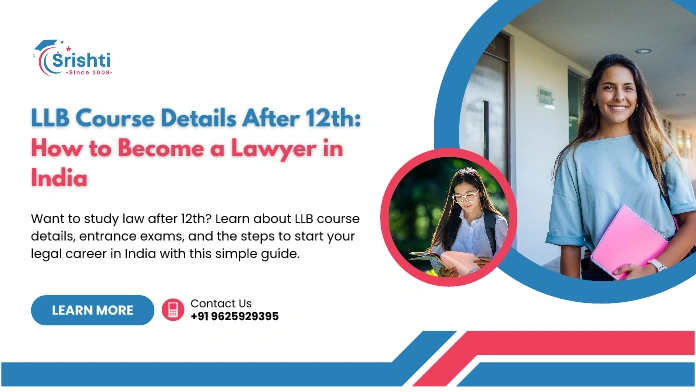
Passing the B.Ed Entrance Exam is an important milestone for those wishing to build a teaching career. The exam tests candidates based on their teaching ability, reasoning, general awareness, and language skills. You can increase your chances of success with proper preparation and effective techniques. This guide will share practical advice to ace your B.Ed Entrance Exam and realize your teaching dreams.
Why Choose a B.Ed Course?
B.Ed degree initiates the path to a successful teaching profession. It prepares candidates with academic teaching methodologies, practical information, and subject matter expertise. Pursuing a B.Ed course upgrades your professional standards and enhances your employment prospects in schools, educational institutions, and private coaching centers. If you're planning a B.Ed from KUK you can benefit from its well-known faculty and well-equipped curriculum.
Understanding the B.Ed Entrance Exam
The B.Ed Entrance Exam tests the candidates on their teaching aptitude, general knowledge, reasoning ability, and language skills. The format can vary slightly from university to university, so it's always better to refer to the syllabus and exam pattern before beginning your preparation.
Most entrance exams have a standard format with multiple-choice questions (MCQs). The syllabus usually consists of:
- General Awareness
- Teaching Aptitude
- Logical Reasoning
- Language Proficiency (English/Hindi)
Subject Knowledge
Step 1: Know the Exam Pattern and Syllabus
Knowing the exam pattern is the key to success. Most universities give official sample papers that can provide information about what kind of questions are being asked. Ensure you know each section's weight to prioritize your study accordingly.
Step 2: Create a Study Schedule
Making a proper study plan is necessary for successful exam preparation. Give separate time to each subject, and concentrate on those areas where you are weak. Don't overload yourself, and give yourself frequent breaks to stay productive.
Study Tips for a Balanced Study Schedule:
- Study at your peak hours.
- Break subjects into smaller topics.
- Make achievable goals and monitor progress.
- Have frequent revision sessions.
Give time for mock tests.
Step 3: Practice Previous Year Papers
Practicing previous year's question papers will familiarize you with the nature of the questions asked. It also increases confidence and improves problem-solving speed. Practice while timing yourself to enhance your speed and accuracy.
Practicing papers from other universities will also familiarize you with different types of questions, making you more flexible on exam day.
Step 4: Improve Time Management
Time management is essential during the examination. Create techniques to manage questions effectively. Do more straightforward questions first to achieve marks early and return to harder ones later.
Tips for Time Management:
- Reserve distinct times for each part.
- Practice using a timer.
- Do not waste time on one question.
Apply elimination techniques to complex questions.
Step 5: Focus on Teaching Aptitude
This section checks your ability to deal with classroom situations, problem-solving, and the application of teaching concepts. Preparation for the B.ED Exam needs deep knowledge of education policies, child psychology, and efficient teaching methods. If these areas are fortified, you will become more assertive in the theoretical and practical parts of teaching.
Key Areas to Focus On:
- Teaching principles
- Classroom management
- Problem-solving ability
- Communication skills
Role of technology in education
Step 6: Improve Your General Awareness
Stay current with current events, general information, and learning updates. Read newspapers, watch learning TV programs, and follow good news sources for better knowledge.
Ways to Stay Informed:
- Take out subscriptions from learning magazines.
- Follow news portals and apps.
- Engage yourself in quizzes and debates.
Download GK apps and get daily updates.
Step 7: Develop Strong Language Skills
Proper command of the language is a must to score well in the entrance exam: practice reading comprehension passages, grammar exercises, and vocabulary-building exercises regularly.
Language Proficiency Tips:
- Read newspapers and magazines.
- Practice mock tests and quizzes.
- Practice grammar rules and sentence construction.
- Keep a vocabulary journal.
Practice writing essays and reports.
Step 8: Practice Mock Tests
Practicing mock tests on a regular basis will help you evaluate your performance, analyze your weak spots, and boost your accuracy and speed. Analyze your error and try correcting it.
Step 9: Keep a Positive Mind
Having a healthy mindset is an essential part of achieving success. Eat a balanced diet, exercise often, and get enough sleep. Practice relaxation processes such as yoga and meditation to diminish stress.
Self-Care Tips
- Take brief pauses between study sessions.
- Eat healthy and stay hydrated.
- Use mindfulness strategies.
Remain connected with positive peers.
Step 10: Stay Motivated
Maintain a positive attitude throughout your preparation. Visualize your success and remind yourself of your goals. Seeking guidance from mentors or joining study groups can provide additional support.
Additional Tips for Exam Day
- Carry all essential documents (admit card, ID proof).
- Reach the exam center well in advance.
- Stay calm and confident.
- Manage your time wisely.
Attempt all questions, as there may be no negative marking.
Conclusion
Clearing the B.Ed Entrance Exam needs patience, strategic planning, and regular practice. If you implement these tips and keep your mind focused in a positive manner, you will reach your target of becoming a certified teacher. For more information and expert guidance, look at these useful links:
Recent Post








